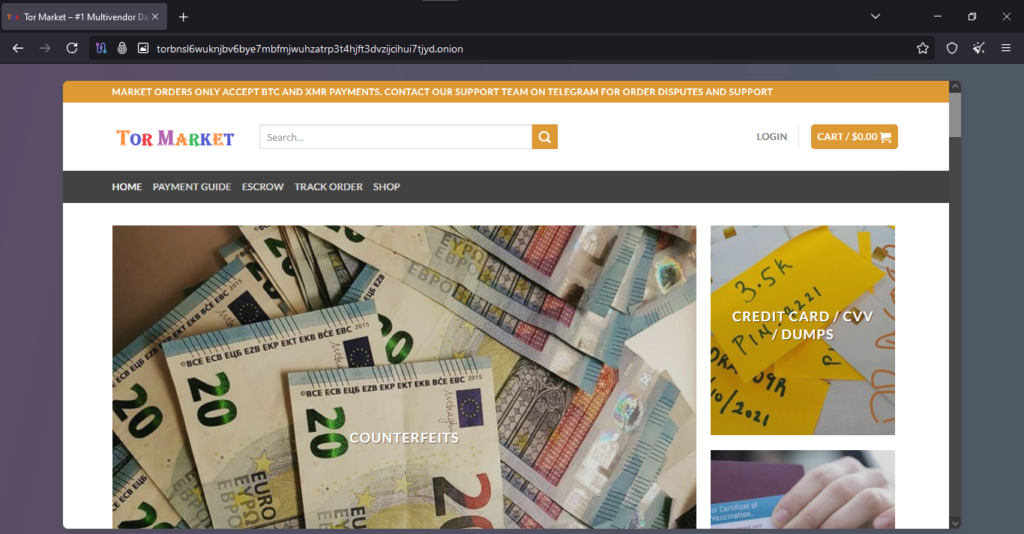Table of Contents
ToggleTor Marketplace – TOR Scam Report (184)
Onion Link : http://torbnsl6wuknjbv6bye7mbfmjwuhzatrp3t4hjft3dvzijcihui7tjyd.onion
Scam Report Date : 2025-02-01
Client Scam Report Breakdown
Original Scam Report :
The client, Fiona, describes her experience with an escrow-based marketplace on the Tor network. She initially researched the platform, which had positive reviews, and was drawn to its escrow system as a safeguard against scams. After purchasing Bitcoin and transferring it to the marketplace, she attempted to place an order for blue crystal meth. However, the order did not go through, and she was inexplicably logged out of the marketplace. Multiple attempts to reset her password failed, with the system claiming no record of her email. She then created a new account with the same email, expecting her funds to transfer, but they did not. After discovering that her funds were neither returned to her Blockchain account nor accessible on the marketplace, Fiona spent two days sending approximately 150 emails to the support team, demanding a response. She ultimately concluded that the marketplace was fraudulent and issued a warning to others, stating that she had lost $350 in the process.
Defining Terminology and Terms
Several key terms in Fiona’s report require clarification. Escrow service refers to a system where funds are held by a third party until both the buyer and seller confirm the completion of a transaction. In theory, this reduces the risk of scams. Bitcoin (BTC) is a decentralized digital currency often used for transactions on the deep web due to its pseudonymous nature. Blockchain account refers to a cryptocurrency wallet used to store and transfer Bitcoin. Fiona mentions the Tor network, an anonymizing system that allows users to access marketplaces beyond the reach of traditional search engines. The mention of password reset failure suggests that the marketplace may have been designed to block users from recovering their accounts once deposits were made, a common scam tactic on fraudulent deep web platforms. Fiona’s concern that the market did not even respond to her messages, despite her threats to leave negative reviews, further highlights the possibility of it being a “rip-off market”—a term used to describe marketplaces that exist solely to steal user funds without delivering any products.
Analysis of the Scam and Recommendations
Fiona’s experience aligns with common patterns observed in fraudulent deep web marketplaces. The fact that she was unable to place her order before being logged out suggests that the site may have been designed to accept deposits without enabling purchases. The inability to reset her password indicates deliberate obfuscation, preventing victims from reclaiming their funds. Additionally, the marketplace’s lack of response to her numerous emails reinforces its fraudulent nature. While Fiona initially trusted the escrow system, this incident underscores the risk of relying on escrow services in unregulated marketplaces. To prevent such scams, users should research forums and review sites for recent scam reports before engaging with any deep web market. Furthermore, utilizing multisignature escrow, where both the buyer and seller must sign off on a transaction before funds are released, can add an extra layer of security. Fiona’s case serves as a cautionary tale about the risks of purchasing illicit substances online, as many marketplaces exist solely to exploit users without ever intending to fulfill orders.







